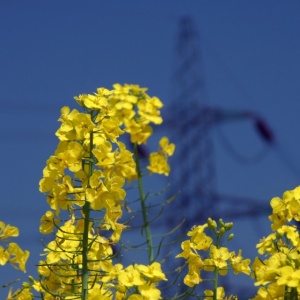
This study argues that government biofuel policies rely on reductions in food consumption to generate greenhouse gas savings. It looks at three models used by U.S. and European agencies, and finds that all three estimate that some of the crops diverted from food to biofuels are not replaced by planting crops elsewhere. About 20 to 50 percent of the net calories diverted to make ethanol are not replaced through the planting of additional crops.
The authors write:
When biofuels divert crops from food and feed, three basic responses are possible. First, farms may replace crops by expanding cropland into forests and grasslands. This LUC releases carbon. Second, farms may replace crops by increasing yields on existing cropland more than they otherwise would.This “yield response” is the most desirable, but it can lead to greater use of fertilizer or water and increased emissions and may leave fewer options to boost yields to meet rising food demands. Third, some of the food may not be replaced, meaning that someone will eat less or less well. Although effects on different groups of the world’s poor will differ, any reduction in global food consumption is likely to disproportionately affect some groups of the poor because they can less afford higher prices.
And conclude:
Regardless of model merits, biofuel policies are relying on estimates of reduction in food consumption to claim GHG benefits. Food reductions result not from a tailored tax on overconsumption or high-carbon foods but from broad global increases in crop prices. If models overstate the food reductions, then they understate the GHGs. Policy-makers who do not wish to mitigate climate change in this way could exclude the GHG credit for these reductions from their GHG calculations. Modelers need to make the trade-offs transparent so that policymakers can consider whether to seek climate mitigation through less food.
The abstract and citation are as follows:
Abstract
Debates about biofuels tend to focus separately on estimates of adverse effects on food security, poverty, and greenhouse gas (GHG) emissions driven by land-use change (LUC). These estimates often rely on global agriculture and land-use models. Because models differ substantially in their estimates of each of these adverse effects, some argue that each individual effect is too uncertain to influence policy. Yet these arguments fail to recognize the trade-offs; much of the uncertainty is only about which adverse effects predominate, not whether adverse effects occur at all. Our analysis of the three major models used to set government policies in the United States and Europe suggests that ethanol policies in effect are relying on decreases in food consumption to generate GHG savings.
Citation
Searchinger, T., Edwards, R., Mulligan, D., Heimlich, R., Plevin, R., 2015 Do biofuel policies seek to cut emissions by cutting food? Science, DOI: 10.1126/science.1261221
You can read the full paper here and see coverage from Science Daily here.
Note that the issue could be looked at from another perspective. As the study touched upon in its conclusions, a policy focus on measures to reduce overconsumption of land-intensive and high impact foods (for example livestock) could in principle release land which could be used for other purposes. Those other purpose may include bioenergy production, but could also include afforestation or rewilding. Clearly measures will need to be carefully designed to ensure that knock on effects on poor people (ie. through food supply, price and accessibility) are not damaging.







Post a new comment »